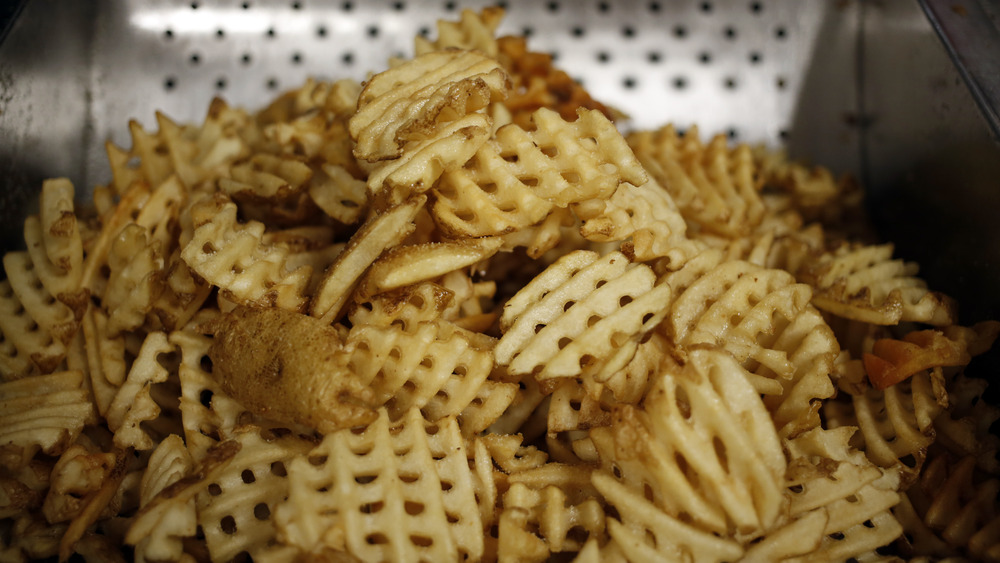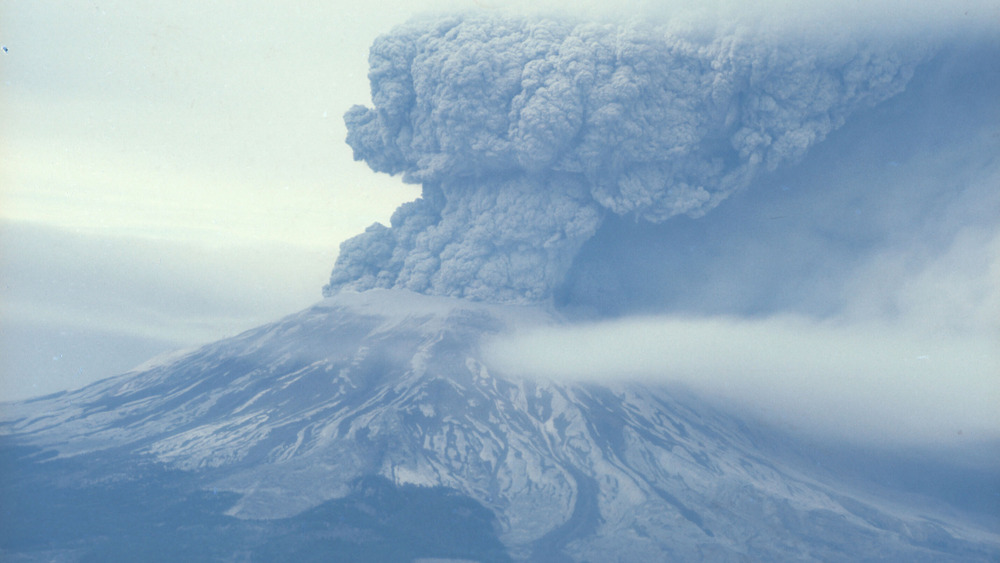How Volcanic Ash Is One Of The Secrets To Success For Chick-Fil-A Waffle Fries
In 2019, Chick-fil-A boasted that their waffle fries were their most ordered menu option (via The Chicken Wire). Of course, fries are a side that goes with most fast food options, so they had that going or them. Still, like the McDonald's fries of old, Chick-fil-A has developed an exacting process to produce these waffle fries. Part of the specifications to get the fries exactly as Chick-fil-A wants is the location that grows the potatoes.
That location is a family-run farm in Washington State's Columbia River Basin. What makes this area special is explained by the farmers in a video put out by Chick-fil-A to highlight the humanity that fuels the corporation (via YouTube): "Mt St. Helens, when it erupted, all the mineral and nutrient deposit was in the rock of that mountain. It was deposited all over the basin here and it made a significant difference in our soil quality." When explained so calmly, the devastation of an erupting volcano almost becomes an abstract afterthought, sounding more like an artisanal infatuation with charcoal than the rage of gods.
From fires to fries
On May 18, 1980, Mt St Helens erupted in what the United States Geological Survey has named as the most destructive volcanic eruption in the history of the country. History reports that 57 died during the day's events and about 210 square miles of land were devastated.
A subsequent report on the impact that the eruption had on local agriculture published by researchers from the U.S. Department of Agriculture and Washington State University estimated crop losses of $100 million, less than originally supposed (via Science). It also notes that wheat, apples, and potato production will blossom due to "favorable conditions" formed by the ashfall. In May 2020, The Spokesman Review marked the 40th anniversary of the eruption and updated the report's prediction by noting how Washington was now "blessed with very fertile soil that supports over 300 different crops." This is due to how the ash, once it comes into the soil's water, begins to break down into chemicals that plants can easily absorb. So, to make the best waffle fries, Chick-fil-A naturally turned to the rich soil newly born from an originally devastating blow.

